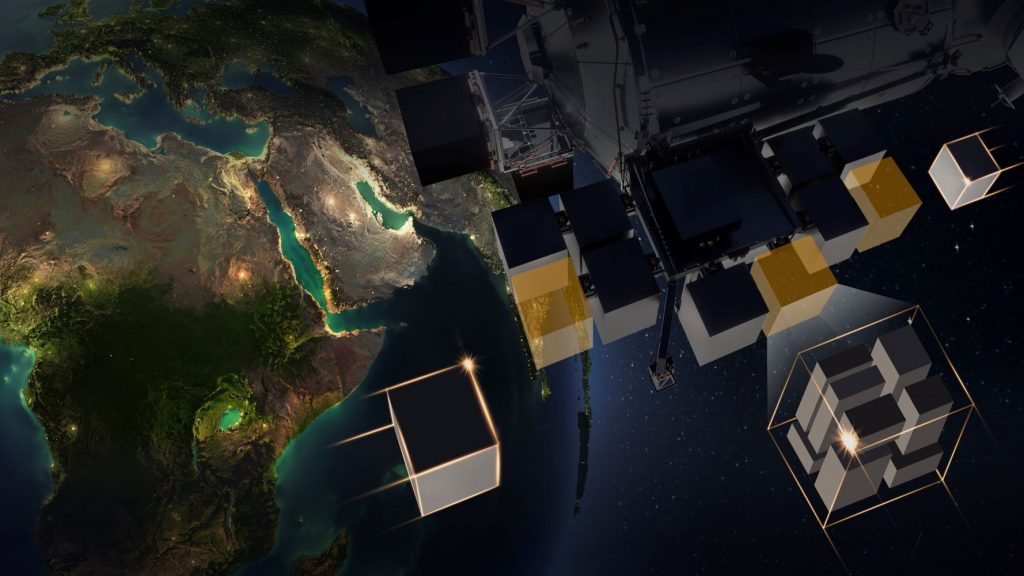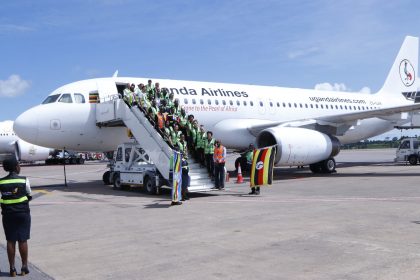Uganda’s space agency wins slot to fly research package on International Space Station

Specialists from the Uganda National Space Programme alongside peers from Kenya and Egypt, are a part of ClimCam, the winning team announced today by the United Nations Office for Outer Space Affairs (UNOOSA) and Airbus Defence and Space, to fly a climate monitoring sensor aboard the International Space Station (ISS) for one year. The climate mission supporting the UN’s Sustainable Development Goals will fly on Bartolomeo, the Airbus external payload hosting platform on the ISS.
The ‘ClimCam’ team consists of specialists and researchers from the Egyptian Space Agency, the Kenya Space Agency, and the Uganda National Space Programme that is hosted within the Ugandan Ministry of Science, Technology and Innovation.
In a statement released today, Airbus says the team will jointly develop a remote sensing camera system to monitor weather, floods, and impacts of climate change in East Africa. The three participating institutions have committed to an open data policy, that will see them share information and images acquired from the project to guide climate change mitigation efforts across the entire region. In addition to its direct goals, the project will also showcase space technology developments made in Africa, inspiring African engineers and scientists.
“Together with Airbus, and thanks to the ingenuity of the brilliant selected researchers, we are making it possible for this module made in Africa to fly onboard the ISS. This project will acquire precious insights for the East African region to address pressing challenges such as droughts and floods and increase the resilience of its agricultural sector, potentially saving many lives and helping to build a better future. It will also be an important inspiration for talent in Africa to join the space sector. We are extremely proud to have played a role in making this happen, and we look forward to seeing the project take flight,” UNOOSA Director Simonetta Di Pippo said.
“We are very pleased to welcome this UNOOSA-backed team with their African climate mission as a passenger on the Bartolomeo platform,” said Andreas Hammer, Head of Space Exploration at Airbus Defence and Space.
“We are offering them our Bartolomeo All-in-One Space Mission Service, meaning that our own experienced Space experts will take care of all aspects of this Space mission – preparatory formalities, payload launch and installation, operations and data transfer. This way, the team can fully concentrate on the development and exploitation of their environmental monitoring payload, without having to worry about anything else. This is one of the fundamental benefits of the Bartolomeo Service – we make access to space easier than ever before,” Hammer added.
This is the first time the UN has selected a winner for an opportunity to access space in partnership with a private sector company.
Speaking for the team, Ayman Ahmed, Team leader at the Egyptian Space Agency and ClimCam project coordinator said “The team would like to express gratitude to the UNOOSA and AIRBUS for this opportunity. We understand that challenges exist in our region; climate change is having a growing impact on Africa and contributing to food insecurity, and stress on water resources in east Africa as well. Having an imaging system at ISS allows us to monitor and see that effect in our home countries. We do realize the challenge of developing such a device to operate on board the ISS with very critical and challenging design constraints.
Describing the competition as “very hard,” Ayman said being awarded the opportunity was rewarding and “just the beginning for our team to learn more and acquire great experience in the field of space technology and its application.”
A version of this story appears at: https://37degreeseast.wordpress.com/

 Brussels Airlines to announce Nairobi service
Brussels Airlines to announce Nairobi service
 SITA promises enhanced travel experience after Materna acquisition
SITA promises enhanced travel experience after Materna acquisition
 Saudia’s 105 aircraft order stretches A320neo lead over rival Max
Saudia’s 105 aircraft order stretches A320neo lead over rival Max
 Boeing refuses to pay hackers $200 million for stolen Data
Boeing refuses to pay hackers $200 million for stolen Data
 Uganda-Tanzania announce date for second joint business forum
Uganda-Tanzania announce date for second joint business forum
 Uganda Airlines leased A320 arrives in Entebbe
Uganda Airlines leased A320 arrives in Entebbe
